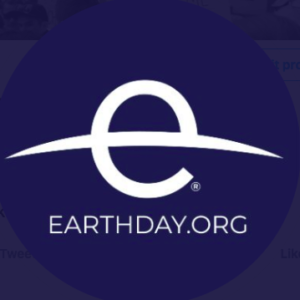Green Cities
EDN Week in Review: Environmental News for Aug. 13-18
August 18, 2018
Climate Impacts and Solutions
Extreme heat in the U.S. is more deadly than floods, hurricanes or other natural disasters. (Oliver Milman, The Guardian)Heat already kills more Americans than floods, hurricanes or other ecological disasters. That puts sweltering cities like Phoenix – where flights were cancelled last year because it was simply too hot – under growing pressure. But heat is rapidly becoming a national problem. More…Leaders from the U.S., Japan, and Mexico formed the Alliance for Climate Action (ACA).
ACA connects cities, states, the private sector, investors, universities and civil society at the domestic level so that they can work with each other and with their national governments to drive climate action.The Trump Administration plans to loosen the EPA’s Clean Power Plan rules to protect the public, including relaxing pollution rules for power plants and giving states the choice of curbing emissions from coal. (Lisa Friedman, New York Times)
The plan is the latest move in a string of efforts — including prodding grid operators to purchase more electricity from coal plants and asserting that coal plant retirements are threatening the reliability of the national power grid — to end what Mr. Trump has called his predecessor’s war on coal and a sure sign to the industry that the Trump administration still has its back, even as coal production continues to decline. More…Poor air quality as a result of wildfires in California is a growing threat to public health. (Maya Miller, Climate Central; and Alexandra Hall, KQED Public Media)
Wildfire seasons in the Western U.S. are 105 days longer than they were five decades ago, billowing smoke that contains tiny chemical particles that threaten public health. “It used to be a few days, maybe a week at worse. Now it’s longer than it’s ever been.” More…
Breathing fire — California’s Central Valley bears the brunt of wildfire smoke https://t.co/bVkXNKOzdU pic.twitter.com/cbS6Qp6tHG
— Climate Central (@ClimateCentral) August 15, 2018
Ending Plastic Pollution
The city of Santa Monica in California is expanding its ban on single-use plastics to include straws, lids, plates, bowls, trays, containers, straws, utensils, stirrers, cups, and lid plugs.“As a beach city, single-use plastics pose serious problems for the natural environment, including polluting the ocean and clogging landfills,” said Chief Sustainability Officer Dean Kubani. More…For the seeing is believing file: images of paddling through a sea of trash sends a powerful message on the need to end plastic pollution. (The Inertia)
Recommended Reading: “More Recycling Won’t Solve Plastic Pollution” (Matt Wilkins, Scientific American)Paddling Through a Sea of Trash Is a Powerful Message on Plastic Pollution, via @the_inertia https://t.co/V9lOIVJR3L #EndPlasticPollution
— Earth Day Network (@EarthDayNetwork) August 17, 2018
The real problem is that single-use plastic—the very idea of producing plastic items like grocery bags, which we use for an average of 12 minutes but can persist in the environment for half a millennium—is an incredibly reckless abuse of technology. Encouraging individuals to recycle more will never solve the problem of a massive production of single-use plastic that should have been avoided in the first place. More…
Protecting the Environment, Humans and Other Species
The weed killer Roundup was found in breakfast cereals. (Oliver Milman, The Guardian)“Parents shouldn’t worry about whether feeding their children heathy oat foods will also expose them to a chemical linked to cancer. The government must take steps to protect our most vulnerable populations.” More…A new survey reveals that scientists at federal agencies, including the EPA and Interior Department, are reporting political interference. (Christa Marshall and Sean Reilly, E&E News)
Censorship is an issue particularly on climate science, according to the report. It cites cases such as Interior forcing the head of Joshua Tree National Park last year to fly to Washington, D.C., over a climate-related tweet. Scientists at the National Park Service were most likely to report censorship related to global warming. “We’ve been told to avoid using words like climate change in internal project proposals and cooperative agreements,” one NPS worker said. More…
